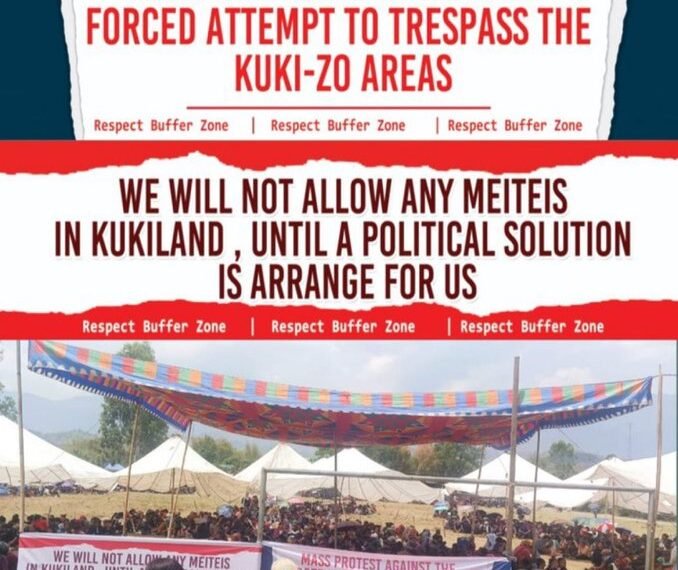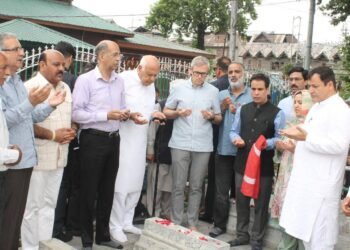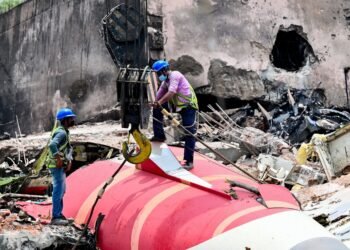The traditional Meitei pilgrimage to the Thangjing Hills is being stalled by massive protests from Kuki-Zo communities, who claim the site and oppose Meitei access amidst ongoing ethnic tensions in Manipur. The blockade has drawn condemnation from Meitei organizations, who see it as a violation of religious freedom.
BY PC Bureau
The fragile peace in Manipur is once again under strain as a significant standoff has erupted between the Kuki-Zo communities and the Meitei community over the annual Meitei pilgrimage to the revered Thangjing Hills, located in the Churachandpur district.
On Sunday, a powerful display of resistance saw thousands of women from various Kuki-Zo hill communities orchestrate massive sit-in protests strategically positioned across the buffer zones of New Zalenphai, Gothol, and Khousabung. These determined efforts are aimed at preventing the entry of valley-based Meitei groups intending to undertake their traditional Cheirao Ching Kaba ritual, an integral part of the Meitei New Year (Cheiraoba) celebrations on April 14.
The sheer scale of the protests, coupled with stringent security arrangements deployed by authorities, underscores the deep-seated ethnic and religious fault lines that continue to fracture the conflict-ridden northeastern state.
The Thangjing Hills hold immense cultural and spiritual significance for the Meitei community, who consider the peak the sacred abode of Lord Ibudhou Thangjing, a prominent deity in their traditional pantheon. The annual pilgrimage to the hilltop shrine is a centuries-old tradition, deeply woven into the fabric of Meitei religious life. However, the Kuki-Zo communities, who assert their ancestral rights over the hill range, have vehemently opposed Meitei access to the site. Their opposition is rooted in the ongoing ethnic tensions and the absence of a comprehensive political settlement addressing their demands for a separate administration following the devastating ethnic violence that engulfed Manipur in May 2023.
ALSO READ: Meetei Body Slams Centre’s Handling of Manipur Strife
Prior to Sunday’s blockade, the tensions had been steadily escalating. On April 9, a coalition of six influential Kuki-Zo organizations, including the Kuki Students’ Organisation, issued a firm statement explicitly warning the Meitei community against crossing the volatile buffer zone. This heavily guarded strip of land acts as a physical and symbolic boundary separating the Meitei-dominated Imphal Valley from the hill districts where Kuki-Zo communities predominantly reside. The statement declared that any attempt to breach this zone for the pilgrimage would be met with staunch resistance, opposed “tooth and nail.”
In response to the br
The growing tensions surrounding the Thangjing Hill pilgrimage in Manipur reflect deep-rooted ethnic and religious divisions that urgently require peaceful dialogue and constitutional resolution. The Meitei Heritage Welfare Foundation’s comparison of the current restrictions to… pic.twitter.com/QUWujsbFZV
— sanajaoba (@Sana10Meitei) April 12, 2025
ewing crisis and the restrictions imposed on their traditional practice, the Meitei community organized prayers at the Ibudhou Thangjing temple situated in Bishnupur district, within a region under their control. This prayer ceremony, held on April 12th, a day before the scheduled pilgrimage, was seen as a symbolic gesture of their continued reverence for the deity and the pilgrimage.
The Meitei Heritage Welfare Foundation, a prominent socio-cultural organization, reacted strongly to the Kuki-Zo protests, denouncing them as “unconstitutional” and a “blatant violation of freedom of movement and right to religious practice,” fundamental rights enshrined in the Indian Constitution.
In a sharply worded statement, the Foundation called upon the Indian State to decisively assert the rule of law and safeguard the constitutional rights of its citizens, questioning whether the demands of “Chin-Kuki militants and their frontal groups” would be allowed to prevail over established legal principles.
There is no connection between Mecca, Kailash Parpat and Thangting mount visiting. Thangting mount visiting is just tries to bring more violence again in manipur by Meitei people. Its Meitei ideas thats why Kuki do not allow it, because we kukis want no more violence. @the_hindu pic.twitter.com/X3zWIERYe9
— Ts. Kuki. (@thoginkhongtha1) April 12, 2025
The Foundation further drew a powerful analogy, likening the restriction on Meitei pilgrims to barring Hindus from visiting Mount Kailash or Muslims from Mecca, urging authorities to intervene decisively to prevent further escalation of the conflict.
A History of Deep-Seated Tensions:
The current dispute over access to the Thangjing Hills is not an isolated incident but rather a symptom of the deep-seated historical and political grievances that have long simmered between the Meitei and Kuki-Zo communities. The Thangjing Hills have emerged as a significant flashpoint in the aftermath of the brutal ethnic violence that erupted in Manipur in May 2023.
ALSO READ: Nagaland Youth Issue Ultimatum in Mhaikam Rape-Murder Case
Adding to the complexities surrounding the Thangjing Hills is a history of contested claims and symbolic acts. In January 2024, tensions flared anew when a large Christian cross was erected at the site, an act that was perceived by many in the Meitei community as a deliberate desecration of their ancient shrine. Meitei organizations also accused Kuki-Zo communities of attempting to alter the historical nomenclature of the hills, allegedly seeking to rename them “Thangting,” further inflaming the already volatile situation.
Conversely, Kuki-Zo leaders maintain that the Thangjing Hills fall within their traditional jurisdiction and that any past allowance of Meitei rituals was a gesture of goodwill, a claim vehemently contested by Meitei historians and cultural custodians who assert an unbroken 2,000-year-old connection to the sacred site and its associated traditions.
Security Measures and the Unwavering Protests:
In a bid to prevent potential violent clashes between the communities, state and central authorities implemented extensive security measures. Thousands of personnel from the Central Armed Police Forces (CAPF) were deployed along the sensitive buffer zones, establishing a strong security perimeter. Numerous checkpoints and barricades were erected to meticulously monitor all movement in the area, while drones and specialized surveillance teams conducted aerial patrols over the contested hill range. Despite this significant security presence, the determined protests organized by Kuki-Zo women looked formidable. Forming human chains across key access points leading to the Thangjing Hills, these women were determined to block the passage of Meitei pilgrims.. By the evening of Sunday, while no major incidents of violence had been reported, the atmosphere in the region remained palpably tense, underscoring the precariousness of the situation.













